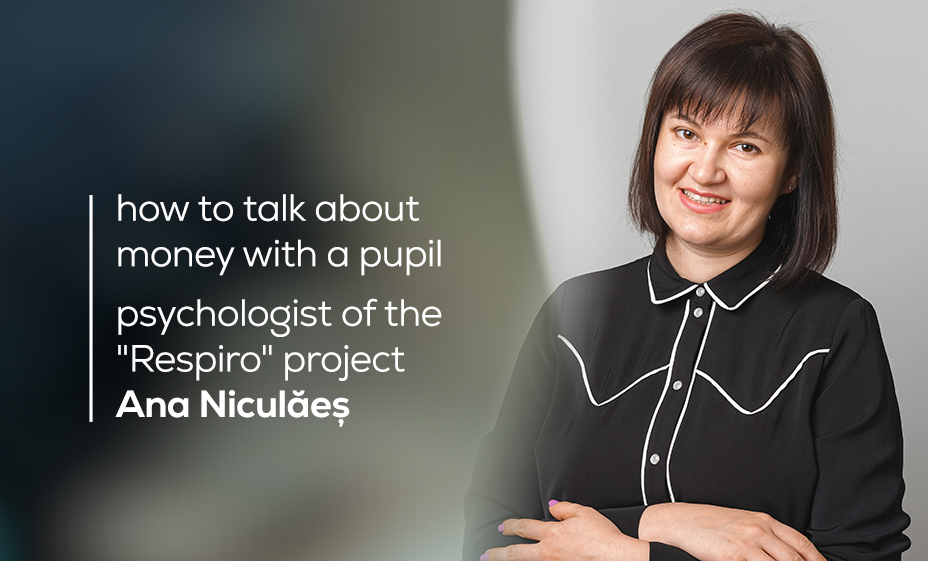In the previous article, we discussed the topic of money to children under the age of 7, and now we go up a step and extend the topic of finances to (pre)teenagers.
If you're the parent of a pupil ( aged between 7 and18), teaching them early to manage their money is important. This skill will help them to cope in life and to become independent , and learn what to do to strengthen their knowledge of financial education. In the maib edu project we have invited the psychologist of "Respiro", Ana Niculăeș, to tell us about it.
Budgeting: Teach them to understand the concept of budgeting and managing their money. Help them keep track of their expenses and income so they know how to plan and monitor their money.
The difference between needs and wishes: Help them distinguish between needs and wants. Understanding this difference can help them make more informed financial choices.
Saving: Encourage them to save for things they want or to put money aside for future situations. You can split savings for different purposes, such as shopping, gifts or even for the future.
Responsible shopping: Teach them to shop responsibly, compare prices and choose from various offers. Understanding cost and value can help them avoid making impulse purchases.
Understanding borrowing and debt: Discuss borrowing and debt, explaining how it works and the importance of paying your debts on time.
Managing risk: Teach them about the financial risk associated with investments or other financial decisions. It can be something as simple as strategy or board games that involve choosing between risks and rewards.
Understanding wages and taxes: Explain the concept of wages and how people earn money through work. You can also introduce the idea of taxes and how they fund public services.
Basic investments: Teach them about savings and investments, even in simple terms. This can help them understand the importance of investing their money wisely.
Fostering entrepreneurship: Encourage them to develop ideas to earn money through small projects or services. This can encourage the development of their creative and business skills.
Clear communication: Maintain open communication and answer their questions honestly. Talking about money with you will allow them to learn and become more confident in managing it.
Thus, financial education should combine basic concepts, practical activities and open discussion for pupils. With an early start in financial education, children will have a solid foundation to manage their finances responsibly as they grow up.
What does your child know about the world of money? Talk to him or her today about money and money management, and turn to Ana Niculăeș's recommendations so your child can learn healthy financial habits.
You can always find valuable information about financial and digital education and not only on the maib edu Facebook page and Linkedin, but also on the maib blog.


 maibank
maibank
 maib business app
maib business app
 internet banking - individuals
internet banking - individuals
 new internet banking - maib business
new internet banking - maib business
 internet Banking - BankFlex
internet Banking - BankFlex




